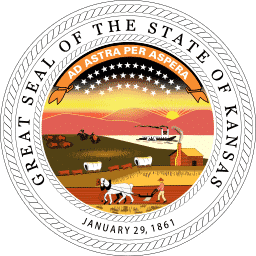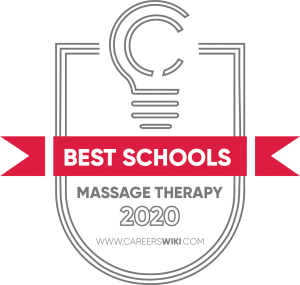…
There are six massage therapy schools in Kansas, from the cities in the east to smaller communities in the west.
Most education programs award certificates, which take a year or less to complete. Some schools offer associate’s degrees in the field. Curricula include coursework and labs, as well as practical experience in student clinics and public facilities.
Kansas massage therapists do not make as much money as their peers in other states, but there are fewer requirements to become a practitioner. Federal officials predict about 100 annual job openings during the decade ending in 2016.
Click here to view massage therapy schools in other states.

This is one of the few places where the practice of massage therapy is unregulated at the state level. No license from the Kansas government is available, despite numerous attempts by state lawmakers to pass legislation creating an oversight authority.
However, some towns and cities issue licenses to practitioners. The requirements to become certified, and the standards to which massage therapists are held, vary by jurisdiction.
To become a massage therapist in Kansas, a student must first earn a high school diploma or GED. Enrolling in an accredited school recognized by the National Certification Board for Therapeutic Massage & Bodywork (NCBTMB) enhances employment prospects.
Some Kansas municipalities require practitioners to graduate from a program that provides a certain number of clock hours of instruction and training. In the Kansas City suburb of Overland Park, massage therapists must complete a 500-hour curriculum that covers anatomy and physiology, kinesiology, pathology, hygiene, and first aid — in addition to hands-on training.
The town of Lenexa mandates graduation from a 500-hour program at a school with NCBTMB certification. Practitioners also must have a healing arts license, as well as CPR certification that is not obtained online.
Prospective therapists in Kansas should strongly consider obtaining education that complies with national standards, since the state Legislature is likely to eventually impose regulations. The NCBTMB and the American Massage Therapy Association sanction schools with programs consisting of 500 or more clock hours. Some institutions offer programs with as many as 900 hours.
Students learn a range of massage techniques — Eastern and Western, from ancient traditions to modern medical therapies. Programs also typically feature courses in anatomy, physiology, kinesiology, pathology, business, laws, and ethics.
To practice in most states, and perhaps soon in Kansas, it is necessary to pass the Massage and Bodywork Licensing Examination (MBLEx). A Kansas student can take the test in a neighboring state and then apply for licensure there. An application for the exam must be filed with the Federation of State Massage Therapy Board (FSMTB).
We selected the schools below based on the programs that they offer, accreditation, student population, graduation rate and reputation.
View our Ranking Methodology to learn more about how we rank schools.

90%
24
This private school’s massage therapy program is available on campuses in Kansas City, Lawrence, Springfield, and Wichita.
Students earn certificates in 11 months. They can attend either day or evening classes. The coursework covers the following kinds of massage: Swedish, sports, prenatal, neuromuscular, integrative, hot stone, and techniques for older adults. There are also reflexology and hydrotherapy classes.
In addition, students gain practical experience performing massages for the public at an on-campus clinic. The school touts its small class sizes and job-placement assistance. The program has a 90 percent pass rate, better than the national average of 74 percent.
66%
191
This award-winning beauty school’s campus in Manhattan provides an 840-hour massage therapy program that takes 24 weeks of day classes or 34 weeks of evening classes to complete.
Students learn about massage history, aromatherapy, nutrition, reflexology, Shiatsu, hot stone massage, business, ethics, safety and sanitation, products and equipment, anatomy, physiology, kinesiology, pathology, indications and contraindications, massage effects and benefits, consultation, nursing home and special needs clients, business and marketing practices, and more.
During the program’s “Mock Clinic” phase, students get hands-on training by performing massage on clients.
44%
1345
The 31-credit-hour massage therapy program here consists of fall and spring semesters. A prerequisite for admission is successfully completing a Medical Terminology class.
The courses are Structural Anatomy, Basic Massage Techniques, Ethics & Business Practices, Anatomy & Physiology, Pathology Basics, Advanced Massage Techniques, and Kinesiology. There are two labs, two clinical experiences, and an externship.
Students choose from one of two “paths” to earn certificates. They may attend classes on campus, or work full-time while taking courses online. All students must show up for “hands-on portions” of the curriculum.
49%
4267
This large public institution offers two massage therapy programs on its campus in Maize.
Courses in the 48-credit-hour technical certificate program include Medical Terminology, Introduction to Entrepreneurship, Composition I, Blueprint for Personal Success, a communication elective, Body Systems and Disease, Mechanics of Movement, Reflexology, Massage Ethics, Lifespan Massage, and CPR. There are also multiple classes in massage techniques.
The 60-credit-hour Associate of Applied Science degree program requires many of the same classes, in addition to Computer Applications, a social science elective, Business Communications, and Intermediate Algebra.
26%
8828
Located in El Dorado, BCC offers a 630-hour certificate program with 32 credits.
The curriculum covers anatomy and physiology, pathology, treatment techniques, protocols following the standards of massage practice, ethics, professional communication skills, and business practices. Students also must take a Physical Fitness or Introduction to Yoga course.
Among the admission criteria are successful completion of at least one high school biology class, a 2.5 grade-point average, CPR certification, and a criminal background check.
$10
$20,400
8%
The average practitioner in this state makes an annual salary of about $20,400 (or an hourly wage of nearly $10), much less than the national median of more than $41,400 a year (or almost $20 per hour).
The top 10 percent of earners in Kansas receive about $46,800 per year (or approximately $22.50 an hour), compared with about $78,300 or $37.60-plus nationwide. For the bottom 10 percent, the pay is above $16,700 or over $8 in Kansas; and more than $21,300 or $10.25 nationally.
There were 850 massage therapists in the state in 2016, according to the U.S. Bureau of Labor Statistics. The agency predicts that the number will rise to 920 by 2016. That would be a job-growth rate of 8 percent, much slower than the projected national median of 26 percent.
Sources: U.S. Bureau of Labor Statistics, CareerOneStop

LIMITED TIME DEAL